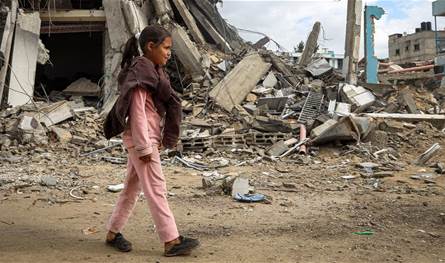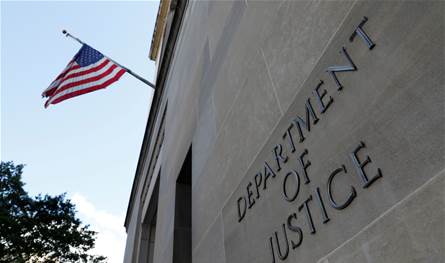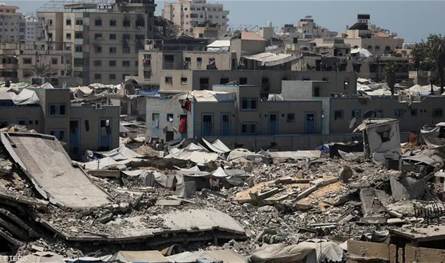What does genocide mean? A report that explains and reveals

With the continued Israeli war on Gaza, the term “genocide” is highlighted in a remarkable and significant way, especially since the Israeli committed by Israel against the Palestinians represents a major crime by all standards.
Here, a basic question comes: What does the term genocide mean, and who can decide to describe the events that occur as a collective genocide?
The first to put the term genocide was the Jewish Polish lawyer Rafael Limkin, in 1943.
The term genocide consists of two parts: the first is the Greek word “Guinoos”, which means sweat or a tribe, and the second part is the Latin word “Sayed”, which means killing.
The motivation behind the lawyer Limkin to work to approve the genocide as a crime under international law, was what he seen by the atrocities that occurred during the “Holocaust” or “Holocaust”, which was sacrificed by all members of his family other than him and his brother.
The efforts to succeed; The United Nations has ratified the genocide agreement in December 1948, to start in force in January 1951. Until 2022, 153 countries approved the genocide agreement.
In the second item of the agreement, there is a definition of the term genocide as “any of the following actions, which are committed with the intention of the total or partial destruction of a national, ethnic, racist or religious group, as these:- members of the group were killed.
– Serious physical or moral harm with members of the group.
– I intentionally subjugate the group to living conditions in which it is intended to destroy its material or partially or partially destroy.
Imposing measures aimed at preventing children from having children within the group.
– Transfer of children from the group, by force, to another group.
The agreement imposes a general obligation on the signed countries to “prevent genocide and to punish its perpetrators.”
Who decides to describe events as a genocide?
The United Nations says it is not the entity to determine whether the fact constitutes a genocide, and that this task is entrusted with specific judicial bodies such as international courts.
Under international law, only a few cases were judged as genocide: including genocide in Rwanda in 1994; The Serbrientesa massacre in Bosnia in 1995, and the Khmer Red campaign against minorities in Cambodia during the period from 1975 to 1979.
The International Criminal Court and the International Court of Justice are the most prominent international courts authorized to adjudicate whether any facts are considered “genocide”. (BBC)
The post What does genocide mean? A report that explains and reveals appeared first on 961 tobay Lebanon today.












